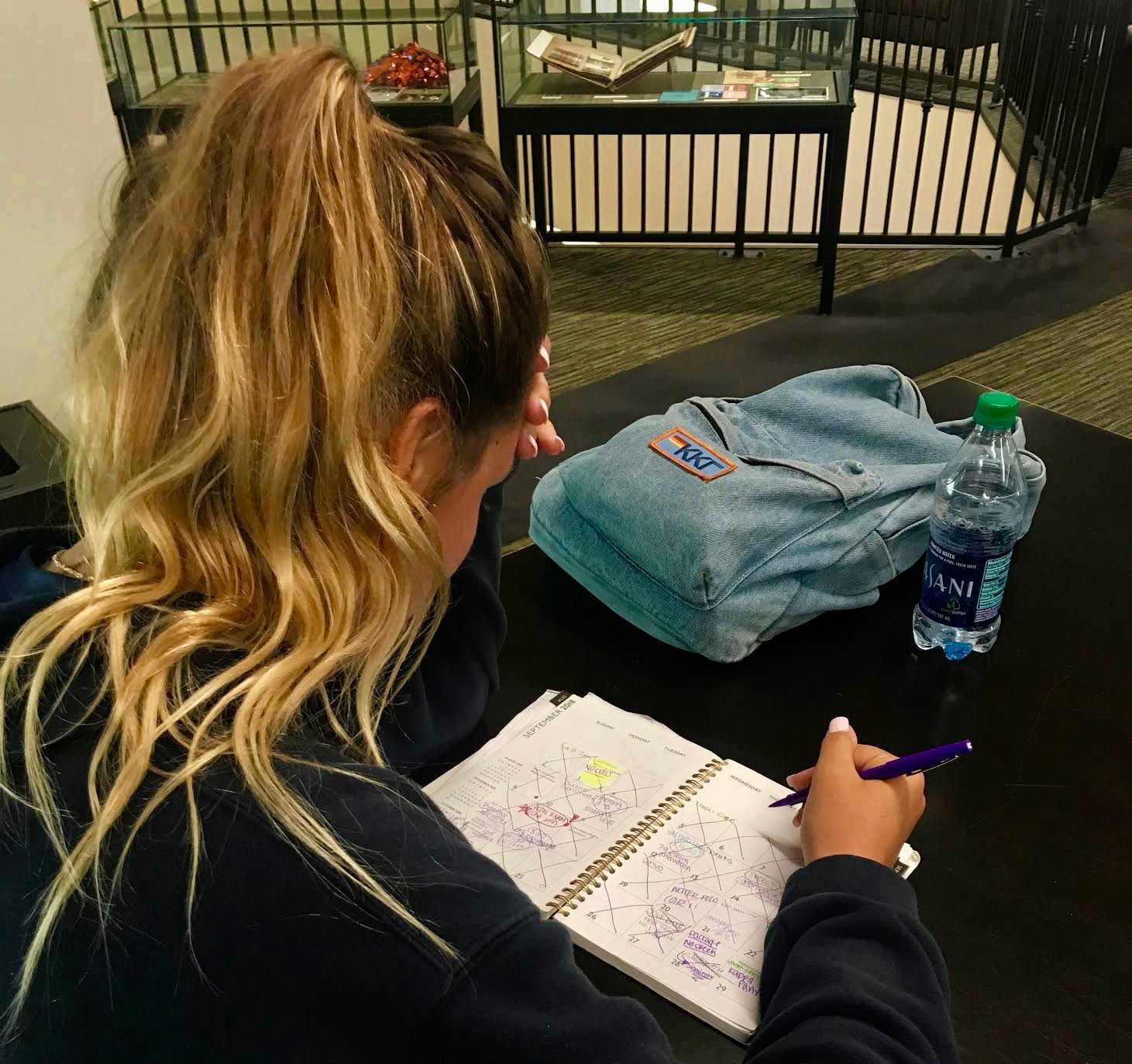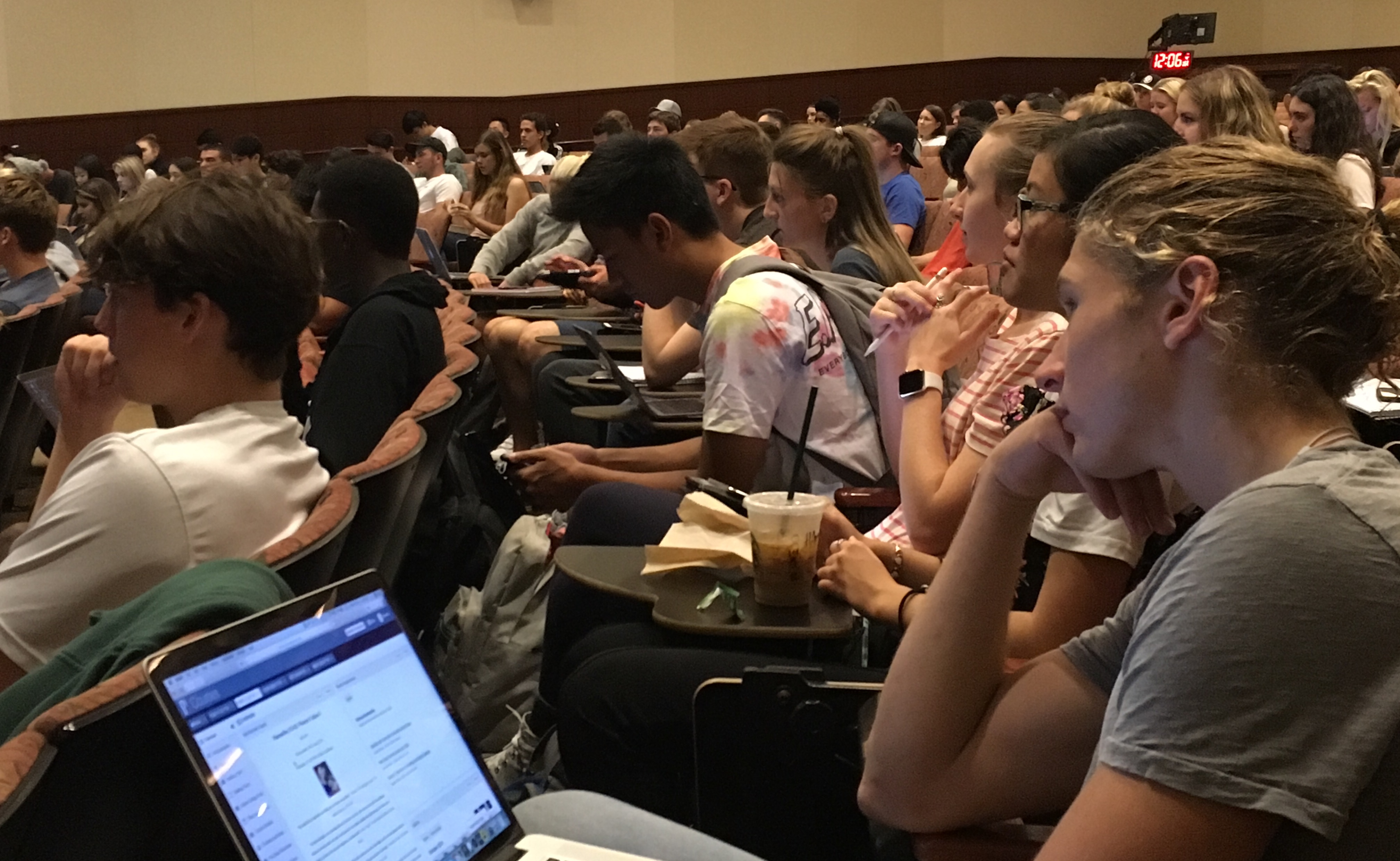
If only there were enough hours in the day.
Being a member of a sorority or fraternity or being an athlete are each very time consuming. To be committed to both — that’s tricky. Only some pull it off, but for many athletes, Greek life is off limits.
“Athletics is a very big commitment and Greek life is as much of a commitment as you want it to be,” said Hudson Casiple, graduate student and Greek Life Affairs intern. “I know of people who balance doing both very well and is just enriching to their college experience, it’s a general trend here at Pepperdine that people try to commit to everything.”
Students believe that the choice to participate in both is dependant on the person. Although no formal policy exists at Pepperdine on whether a student athlete can or cannot join Greek life, coaches generally discourage it, 33 student athletes said.
What is holding athletes back?
A Pepp Post of 51 student athletes found that the three biggest reasons why some athletic programs oppose their athletes from going Greek is the time commitment, conflicting priorities and distraction Greek life can cause.
Some coaches discourage Greek life more than others such as Men’s Volleyball and Men and Women’s basketball, athletes said. However, there are a few athletic programs at Pepperdine that have student athletes affiliated in Greek life, such as Men’s Baseball and Women’s Swim and Dive because the coaches have no problem with it as long as their athletes know where their priorities are.
“I think that Greek life at Pepperdine is much different than other schools so as long as the athletes and the Greek life understand that athletics is first then I don’t ever have an issue with it,” Women’s Swim Coach Joe Spahn said.
Greek life at Pepperdine is incomparable to Greek life on bigger campuses. Pepperdine Greek life is considered very small and the chapters hold different mentalities and reputations having a larger focus on philanthropy rather than parties
“There are definitely aspects of the culture that I would understand coaches not being fond of being what Greek life is conventionally known as,” Caspile said. “Athletics could be tempted to wonder why would you need to do that when you’re already on a team — why do you need more brothers … when a team essentially functions like a brotherhood.”
Many student athletes decide not to be affiliated because it could potentially strain the relationship and bonds within the team.
“There is a huge time commitment with playing a sport and being in a fraternity but coaches want you to be close with the guys on the team,” said Christian Stoutland, a fifth-year baseball player mastering in American Studies. “The team itself is a fraternity, it’s a brotherhood in that sense, so I guess there could be a feeling from the coaches that they might think because you are hanging out with other guys you won’t be close with the team.”
Many student athletes said that a coaches’ stance was the most influential factor in the decision to go Greek.
“Coaches have an influence on whether their athletes can or can’t but I don’t think they can actually stop you from doing it,” said Coleman Carpenter, a sophomore water polo player and business administration major. “They can highly encourage you to not join so if they say not to do it then we won’t do it.”
What holds athletes back from choosing to go Greek is dependant on the person and whether or not they can manage handling an extremely busy schedule.
“I think coaches want them to be committed entirely to their team, and I can understand that but it’s up to the individual,” Baseball Coach Rick Hirtensteiner said. “If someone is able to do it and able to be committed to Greek life and fully committed to their athletic team whom I to say they can’t do it … all I would say is that it would be quite difficult to do and then still be successful in the classroom.”

What makes being affiliated in Greek life so enticing?
There are many deciding factors that influence athletes to rush a sorority or fraternity such as being a legacy, networking or philanthropy events. However, for athletes to make a decision to commit they have to consider if they can handle a full schedule.
“We are with the swimmers 20 hours a week but it feels like all the time so it’s nice to have another outlet of friends,” said Tatum DeGoey, a freshman swimmer and communication major.

Pepperdine student athletes have one to two practices a day with school work in between. To be a student athlete is almost like a full time job, nonetheless, the few athletes that go Greek said they don’t mind giving up their little to no free time for a sister or brotherhood.
“Sometimes athletics gets really intense and you just want to take a step back and you’ll always have friends outside that you can go to,” said Kinsey Ehmann, a freshman soccer player and business major.
The poll found that the three biggest reasons to why athletes choose to go Greek is because friends are affiliated, for the college experience and the social network/social scene.
Student athletes who’ve gone Greek said it is an outlet for them to direct their focus on other things aside from school and sports. To be affiliated provides a different setting and different opportunities unrelated to their normal routine. Greek life holds philanthropy events and leadership positions that students can’t get anywhere else.
“I wanted to meet new people because I knew I would be with the swim team all the time so just expand the people I know and it’s fun to do philanthropies,” said Cassie Anderson, a junior swimmer and sports administration major.
Erica Martinez completed the reporting for this story under the supervision of Dr. Christina Littlefield and Dr. Theresa de los Santos in Jour 241 in fall 2018. Dr. Littlefield supervised the web story.



